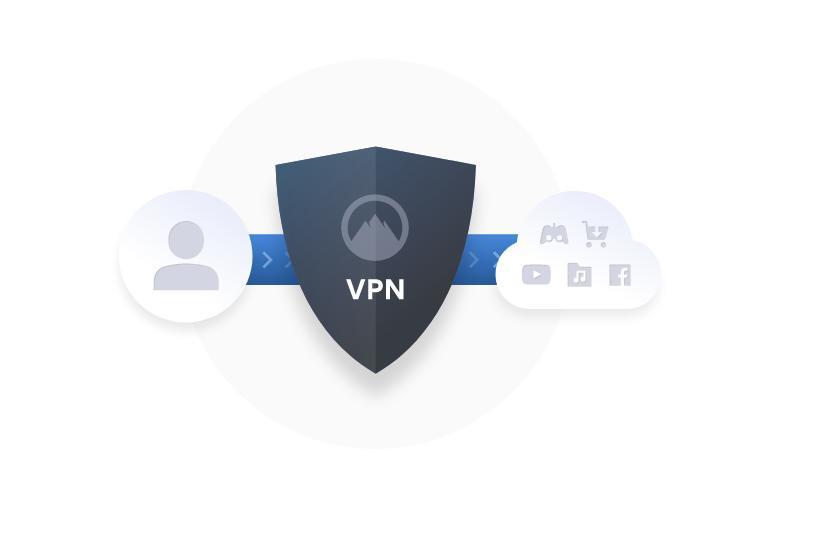
Get secure and private access to the internet
Imagine VPN as a hack-proof, encrypted tunnel for online traffic to flow. Nobody can see through the tunnel and get their hands on your internet data. NordVPN gives you peace of mind each time you use public Wi-Fi, access personal and work accounts on the road, or want to keep your browsing history to yourself.
Protect all your devices
Do you use Windows at work, macOS at home, and Linux for your special projects? No problem. There’s a NordVPN application for each of these, plus apps for iOS, Android, and Android TV. Oh, and also encrypted proxy extensions for Chrome and Firefox. Best of all, with one NordVPN account, you can secure up to 6 devices at the same time.
Enjoy fast and stable connection anywhere
Buffering is the ultimate buzzkill, so streaming or downloading files with a slow internet connection is not an option. No worries here! Choose from over 5700 NordVPN servers in 60 countries and enjoy the fastest VPN experience. Having more servers means less load, and the wide variety of locations means there’s a higher chance you’ll find one nearby.

What does a VPN do?
Typically, when you try to access a website on the internet, you start by connecting to your internet service provider (ISP). They redirect you to any websites (or other online resources) that you wish to visit. All your internet traffic passes through your ISP’s servers, which means they can see and log everything you do online. They may even hand your browsing history over to advertisers, government agencies, and other third parties.
Here’s where a VPN comes into play. It redirects your internet traffic through a specially configured remote server. This way, the VPN hides your IP address and encrypts all the data you send or receive. The encrypted data looks like gibberish to anyone who intercepts it — it is impossible to read.
Secure internet connection
Consider a public Wi-Fi network — perhaps at an airport or a coffee shop. Usually, you would connect without a second thought, but do you know who might be keeping tabs on the network traffic? Can you even be sure the hotspot is legitimate? Could it be set up by a criminal who's hunting for your personal data? Think about the passwords, banking details, credit card numbers, and any other private details you send every time you go online.
With a VPN enabled, all the data you send and receive travels through an encrypted tunnel so that no one can get their hands on your private information. That means even if a cybercriminal does somehow manage to intercept your data, they won’t be able to decipher it.

Complete online privacy
Without a VPN, your connection is fully open. A lot of random people or devices can look at your data, log it, and use it in ways you can’t control. That includes your ISP, employer, the Wi-Fi router in the coffee shop mentioned above, any server along the way, or any person with the right tools. Based on your IP address, which depends on your location, sites and services may charge different prices or show intrusive targeted ads.
Government agencies can track your online activity and share the retained metadata with each other. They also share intelligence across country borders through alliances such as “14 Eyes.”
With a VPN connection, you can have peace of mind knowing that your data is encrypted and IP address hidden. Your ISP can no longer see which websites you visit because all your activity is routed through the VPN server. As a result, they can’t collect your internet metadata nor log your browsing history. Best of all, they can't share it with anyone else.
Safe content access
Various countries around the world restrict access to one type of online content or another. Social networks, games, chat apps – even Google itself is not beyond the reach of censorship. Many workplaces and academic institutions also use firewalls to limit access to websites. They do it for different reasons: from increasing productivity to restricting inappropriate content.
Websites and services are blocked by denying access based on your IP address. When you connect to the internet, your IP shows the country you are currently in. So any country-specific restrictions are applied to you as well.
Using a VPN allows you to connect to servers in different countries, making your IP address look like you are somewhere else. This IP swap helps you access restricted websites and keeps your private information safe at the same time.
Why do I need a VPN?
Even if you have nothing to hide, you probably don’t like the idea of being watched and tracked. So the main reason why internet users choose VPN services is online privacy and general security.
When you browse the internet using a VPN, your communications are encrypted, so your ISP, government, hackers and other third parties are not able to see which websites you visit and cannot interfere with your online activities.
Another great thing about using a VPN is that you can access the global internet wherever you are. A VPN allows you to connect to hundreds of remote servers in different locations, this way bypassing censorship.
Here are a few most common cases when you should strongly consider using a VPN:
You use public Wi-Fi regularly
When you're using a public Wi-Fi network, even a password-protected one, a VPN is your best friend. That’s because using public hotspots can be rife with hazards. Hackers have many methods to intercept your internet traffic and steal your passwords, files, and photos.
The good news is that a VPN allows you to stop worrying about data loss or identity theft. With a VPN connection, you can check your email and social media accounts, make banking transactions and shop online in full security. Even on free Wi-Fi.
We care about your privacy.
Copyright © 2012-2019 NordVPN.com [email protected]



